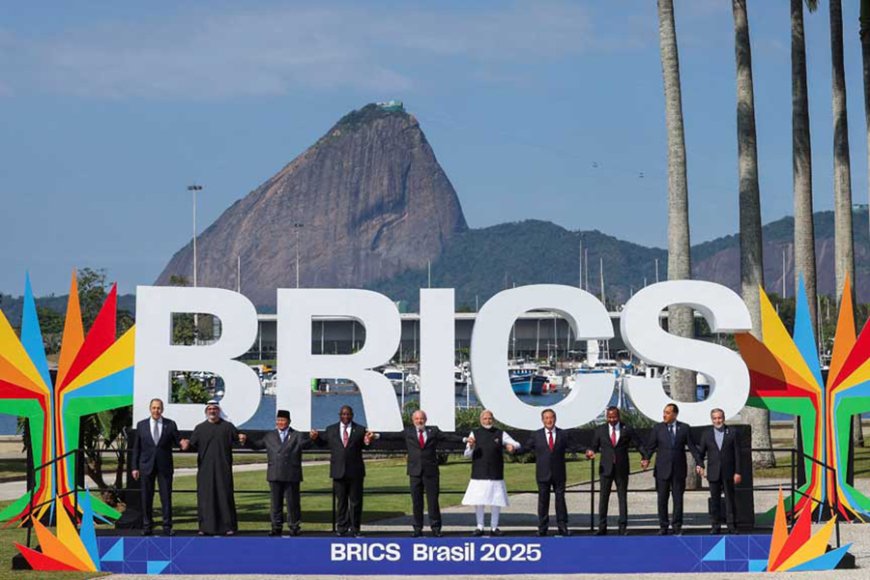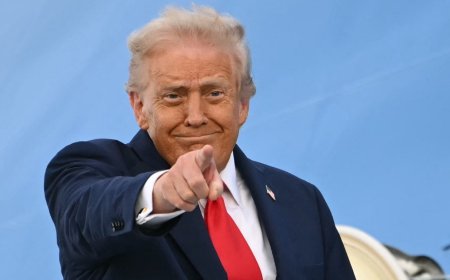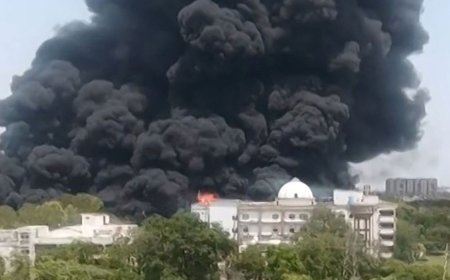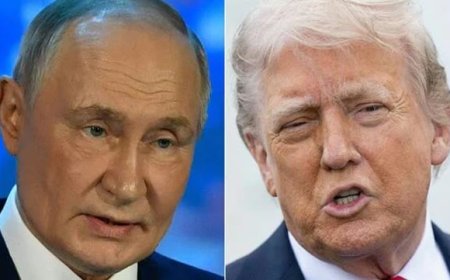BRICS leaders denounce attacks on Gaza and Iran, call for global reform initiatives
BRICS leaders denounce attacks on Gaza and Iran, call for global reform initiatives

BRICS Leaders Condemn Strikes on Gaza and Iran, Push for Global Institutional Reform
Leaders of the BRICS group of emerging economies on Sunday condemned attacks on Gaza and Iran, called for sweeping reforms of global institutions, and positioned the bloc as a vital platform for multilateral diplomacy amid intensifying global conflicts and trade tensions.
Amid growing fractures in traditional forums like the G7 and G20, and the disruptive “America First” agenda championed by U.S. President Donald Trump, BRICS has emerged as a counterbalance, with its recent expansion creating new opportunities for diplomatic alignment.
Speaking at the opening of the summit in Rio de Janeiro, Brazilian President Luiz Inacio Lula da Silva likened BRICS to the Cold War-era Non-Aligned Movement—a coalition of developing countries that resisted taking sides in a divided global order.
“BRICS is the successor to the Non-Aligned Movement,” Lula said. “At a time when multilateralism is under siege, our autonomy is once again at risk.”
Lula pointed out that BRICS now encompasses over half of the world’s population and accounts for 40 percent of global economic output. Addressing business leaders on Saturday, he warned of the dangers posed by rising protectionism.
The original BRICS alliance—formed in 2009 with Brazil, Russia, India, and China—later welcomed South Africa and, more recently, added Egypt, Ethiopia, Indonesia, Iran, Saudi Arabia, and the UAE. This marks the first leaders’ summit to include Indonesia.
“The void left by other powers is being rapidly filled by BRICS,” said a Brazilian diplomat, who spoke on condition of anonymity. While the G7 still wields considerable influence, the official noted, “its dominance is no longer what it used to be.”
Still, the expanding and increasingly diverse membership of BRICS—encompassing regional rivals and major emerging economies—raises questions about the bloc’s unity and shared purpose.
Chinese President Xi Jinping sent his premier in his place, and Russian President Vladimir Putin joined virtually, due to an ICC arrest warrant. Yet several leaders—including Indian Prime Minister Narendra Modi and South African President Cyril Ramaphosa—gathered in person at Rio’s Museum of Modern Art for the two-day summit.
More than 30 countries have expressed interest in joining BRICS either as full members or partners.
Increased Influence, Growing Complexity
The enlargement of BRICS has given the group added diplomatic heft, reinforcing its ambition to champion the voice of the Global South and pushing for reforms to global institutions like the UN Security Council and IMF.
“If global governance fails to reflect today’s multipolar reality, it’s up to BRICS to help correct that,” Lula said, criticizing the failures of past U.S.-led interventions in the Middle East.
He called on BRICS to lead institutional reform efforts, referencing last year’s G20 summit in Rio: “In just a short time, the global landscape has deteriorated so much that many initiatives we agreed upon then would now be unthinkable.”
In a joint communiqué issued Sunday, BRICS leaders condemned attacks on Iran’s civilian and nuclear infrastructure as violations of international law.
The group also expressed deep concern over the humanitarian situation in Gaza amid Israeli military actions, and denounced what it termed a “terrorist attack” in Indian-administered Kashmir.
On trade, the statement warned that the growing use of tariffs threatens the global economy—an implicit rebuke of Trump-era U.S. trade policies.
The bloc also endorsed the accession of Ethiopia and Iran to the World Trade Organization and urged the restoration of the WTO’s dispute resolution mechanism.
The leaders backed a proposal to launch a BRICS Multilateral Guarantees initiative within the New Development Bank to reduce borrowing costs and stimulate investment across member states, as previously reported by Reuters.
In a separate declaration on artificial intelligence, BRICS leaders called for safeguards against unauthorized AI usage, protections against excessive data harvesting, and systems to ensure equitable compensation.
Brazil, which will host the UN climate summit later this year, has used both events to showcase the Global South’s commitment to climate action—contrasting with the U.S., where Trump has stalled major environmental policies.
During side meetings with Brazilian Finance Minister Fernando Haddad, officials from China and the UAE expressed intent to invest in the proposed Tropical Forests Forever Facility, aimed at funding conservation of threatened forests globally, according to sources familiar with the talks.
What's Your Reaction?






















































































